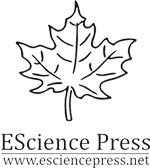Challenges in Provision of Essential Dental Care Services by Dentists during the Covid-19 Pandemic in Public and Private Healthcare Facilities in Islamabad, Pakistan
DOI:
https://doi.org/10.53576/bashir.006.01.0230Keywords:
COVID-19, Dentists, Dental Practice, Essential Dental Care Services, PandemicAbstract
Background: The COVID-19 pandemic has been a burden to all healthcare professionals, including dentists. The close contact and exposure to aerosols create a serious health hazard for the dental professionals; it’s impossible to halt the clinical practice completely, as it not only is economically challenging, but also creates an ethical dilemma by depriving patients of care who are in need. This study aimed to explore various challenges faced by dental professionals in providing essential dental care services during the COVID-19 pandemic in public and private healthcare facilities of Islamabad and assessed their knowledge and attitude regarding updated guidelines, PPE protocols, and their implementation. Methods: It was a descriptive cross-sectional study that used a comprehensive questionnaire to collect data about various variables related to challenges faced by dental professionals practicing during the COVID-19 pandemic. The questionnaire consisted of eight sections, including socio-demographic, patient attitude, trends of practice, medical resources, COVID-19 SOPs, PPE, financial burden, anxiety, and depression. A sample of 70 dental professionals, with the majority dentists (93%), participated in the study. About 43% practiced in private clinics, 30% in private hospitals, and 26% in public hospitals. The data were collected using Google Forms, and then the statistical analyses using the chi-square test at p<0.05 were conducted using SPSS software version 25. Results: Majority of the participants (70%) agreed that the practice changed during COVID-19, about 68% performed non-emergency procedures due to various underlying reasons. The type of workplace was also significantly associated with a decrease in income, use of another source of income, taking a COVID-19 test for patients, and belief that the latest guidelines of dental settings during COVID-19 are useful. The field of practice of dental practitioners was significantly associated with the belief that the phone is effective in resolving patients’ dental problems, the types of dental services provided, and belief in possible changes in guidelines toward dental practice during COVID-19 in the future. Conclusion: The study revealed that even though the knowledge of dental practitioners regarding the latest guidelines seemed up to date, they faced financial, psychological, and other challenges regarding resources in their practices owing to this pandemic. Thus, the government and policymakers must pay attention to these factors while designing future guidelines and ensure the availability of the required material and equipment.





